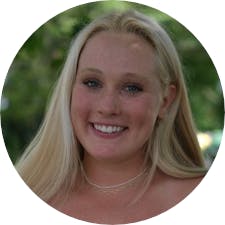This fall, initial enrollment for Environmental Economics (ECON 0265) reached a total of 39 students — three over the usual cutoff — with an additional 34 on the waitlist. Economic Statistics (ECON 0111), topped its usual 36-person limit by four, adding an extra 20 seats to the waitlist. Ethnic Conflict (PSCI 450), a senior seminar in the Political Science Department that is usually capped at 15 and had only 10 students last year, currently enrolls 20 students.
The Middlebury website boasts an average class size of 16 students and a 9:1 students to faculty ratio. But those statistics don’t seem to reflect many students’ experiences in the classroom — especially majors in certain departments.
Over the past two years, student over-enrollment has created a housing crunch on campus, and is one of the leading causes of an increase in the number of students enrolled in certain academic courses. This uptick in the undergraduate population size, staffing shortages in some departments and shifts in the popularity of certain majors have made it challenging for professors to provide the same resources and intimate class feel that the college advertises. As the school trends toward a larger-than-normal population size, professors are finding it hard to keep up.
Professor Amanda Gregg, who teaches Economic Statistics, said her class “is the largest [she’s] ever had.” In an email to The Campus, Gregg said each additional student adds hours to her workload and hinders her ability to provide individual attention to those who need it. Gregg has hired two graders to help lighten the work, but said most responsibility falls on the department’s faculty and staff to adjust their schedules to accommodate students.
English and Environmental Studies Professor Dan Brayton is noticing the same trend in his courses. Contested Grounds (ENVS 0215) alternates between a larger enrollment cap of 50 and a smaller one of 25 to 30 based on need, according to Brayton. Even with the larger cap this semester, he still added three extra chairs to accommodate “students with particularly compelling reasons to need the class.” As a general rule, the department prioritizes students pursuing a major or minor in the subject but cannot guarantee admission to core courses, which often impacts students’ decisions to stick with the major, Brayton said.
“It's a wildly popular major and minor,” Brayton said. “So much so that students regularly give up on the major because they can't get into the core courses.”
This year, the Chemistry and Biochemistry Department hired another lab professor and increased some lab section sizes to make space for more students, but they are limited by “hard cap[s]” on class enrollment due to lab availability and safety. In an email to The Campus, Professor Rick Bunt said the department has longer waitlists this year and is “keep[ing] track of students who didn’t get in this semester so that [they] can give them priority for the course the following semester.”
Bunt said the negative “seats available” numbers that appear on the BannerWeb site reflect those “saved seats” for students on the waitlist.
“We have to keep track manually and ‘save’ seats for student[s] on the waitlist,” Bunt said. “That process may also distort the numbers of extra students you might see on the online listings — we have to reduce the seats on Banner to account for the students we are ‘saving’ seats for from last term’s waitlist.”
Although classroom over-enrollment is a problem across many departments, Brayton noted that many courses in the humanities departments are not experiencing the same spike in numbers. Environmental Studies is, in Brayton’s words, “almost universally over-subscribed.” But some courses in the English department, like Adventures in Literary Romance (ENGL 0123) and Eighteenth Century American Literature (ENGL 0225) still have seats available, according to course information on BannerWeb.
Brayton said over-enrollment of classes has disproportionately impacted certain departments.
“To some extent, that reflects national trends, students moving away from humanities majors. That’s data — that’s demonstrable at a national level,” Brayton said. “But there are other factors at play. And that’s what kind of concerns me — those local Middlebury factors. Why are we programmatically over-enrolling courses in certain areas and in others, frankly, under-enrolling?”
“If you just do a simple arithmetical ratio of faculty to major, that ratio is completely out of whack if you compare English to Environmental Studies,” he said. “And the same is true for Computer Science, Econ — these are the majors that are booming.”
According to Brayton, the college has failed to expand the faculty to accommodate the growing student population and alleviate stress for professors, instead investing in “massively expensive rebuild projects” like updates to the Johnson Memorial Building, the renovation of Warner Hall, the new student center project that is part of the college’s five-to-seven year plan and the new first-year dorm for which the college has yet to break ground.
“Is that really where we should be investing our money, in bricks and mortar? Or should it be in morale, student experience, growing the faculty? Simple answer from me,” Brayton said.
“The college has significantly over-enrolled without growing the number of FTEs [full-time equivalents], without growing the faculty in any meaningful way, if at all,” Brayton said. “And this is where I’m most concerned, because great institutions of higher education invest in their faculty, which is to say, invest in the student experience.”
Some departments have been particularly impacted by staffing shortages. Five Computer Science professors are currently on leave, and two left the college last spring, limiting course offerings for the fall. In an email last spring, Professor Matthew Dickerson, then-chair of the department, informed majors that the staffing shortage would impact the availability of upper-level computer science courses and that students would not be able to enroll in more than one 300-level or above class during registration, with few exceptions.
For many faculty, adequate staffing and fair compensation for college employees are the lynchpin of a successful teaching system. Last week, the AAUP (American Association of University Professors) editorialized on the topic, calling on the administration to provide appropriate compensation and resources to match professors’ increased workload and adjust to student over-enrollment.
Thirteen professors replied to a Sept. 26 Tweet by The Campus’ Editorial Board Director Lily Laesch ’23, who was gathering information for that week’s editorial and called on Middlebury professors for estimates of current class sizes.
Gender, Sexuality and Feminist Studies Professor Laurie Essig replied, “So it’s not that I let in many more than usual because each extra student equals about ten extra hours of labor a semester and since I believe we should act our wage — and we are all earning less — I said no. But the number of emails asking to be let in almost doubled.”
Kemi Fuentes-George, professor of Political Science and director of International and Global Studies, joined in. “Keep in mind, faculty and staff are dealing with these increases with no meaningful raise in pay over the past 2 years,” he wrote.
Demand for popular classes only continues to grow. With an additional 300 students in the student body this fall compared to recent years, managing class sizes and compensating professors accordingly has become a key issue for many faculty and students.
“The fact of the matter is that there is a morale crisis at Middlebury College, certainly among faculty, and certainly amongst staff,” Brayton said. “Even if it's not about every dollar and nickel, it’s about being recognized for what I do. And I think that's where the morale crisis lies.”

Brinlea La Barge '23 is the senior news editor.
She previously served as news editor and sports editor. La Barge studies English and Linguistics at Middlebury and is a peer writing tutor and captain of the women's tennis team.
She spent the summer of 2022 as a communications intern for the Josh Shapiro for Governor campaign, and previously worked for Nantucket Magazine and WHYY, Philadelphia's local PBS and NPR affiliate.




